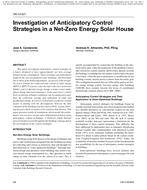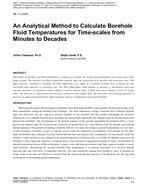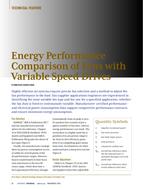Numerically studies the effects of a radiative heat source and a cooling panel on indoor air flow, temperature stratification, and dispersion of contaminants in a furnished office with displacement ventilation. The air supply device simulated is a quarter-cylinder displacement diffuser. The percentage of radiative heat is considered to be 20% and 80%, respectively, and the ventilation rate changes from 2.1 ach to 4.2 ach. Four cases, with and without a cooling panel, are examined. In order to determine the radiative heat transfer between surfaces of the room, a simplified analytical method is proposed to estimate the temperature of an adiabatic wall so that computer time can be saved without a significant sacrifice in accuracy. It has been found that a ceiling-mounted cooling panel can not only reduce the vertical temperature stratification but also strengthen the air movement. With the same total heat, the increase in the portion of radiative heat may enhance air movement and contaminant dispersion. Also, the air temperature in the central region becomes lower.
KEYWORDS: air flow, indoor, heat flow, temperature stratification, air temperature, air pollution, offices, displacement ventilation, ventilation, calculating, adiabatic, walls, computers, cooling, air movement, radiant panels, ceiling cooling
Citation: ASHRAE Trans. 1992, vol.98, Part 1, Paper number 3545, 33-42, 8 figs., 1 tab., refs.
Product Details
- Published:
- 1992
- File Size:
- 1 file , 1.1 MB
- Product Code(s):
- D-17716


